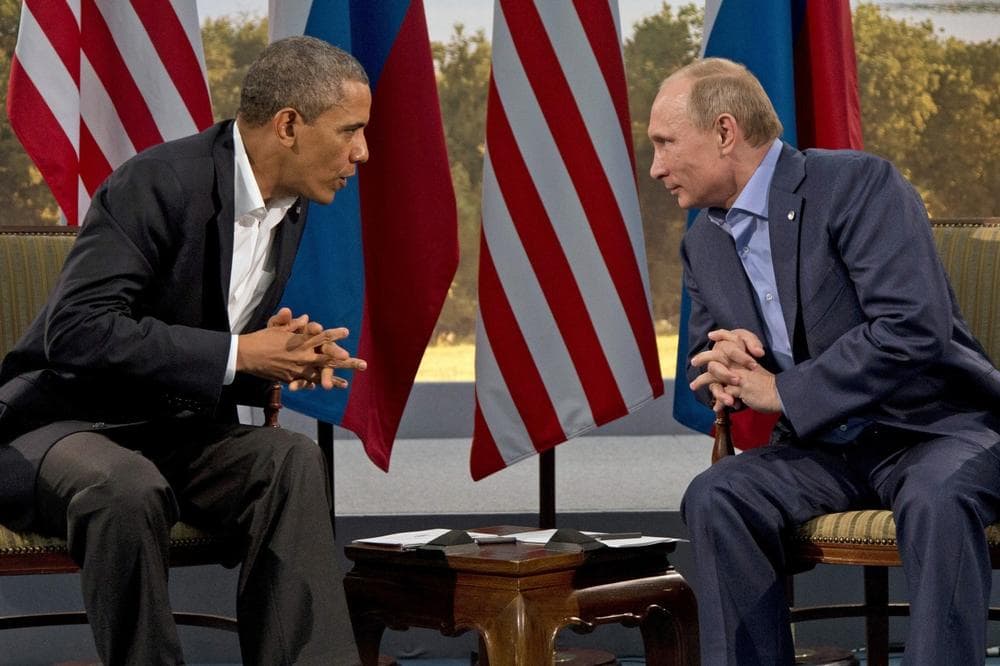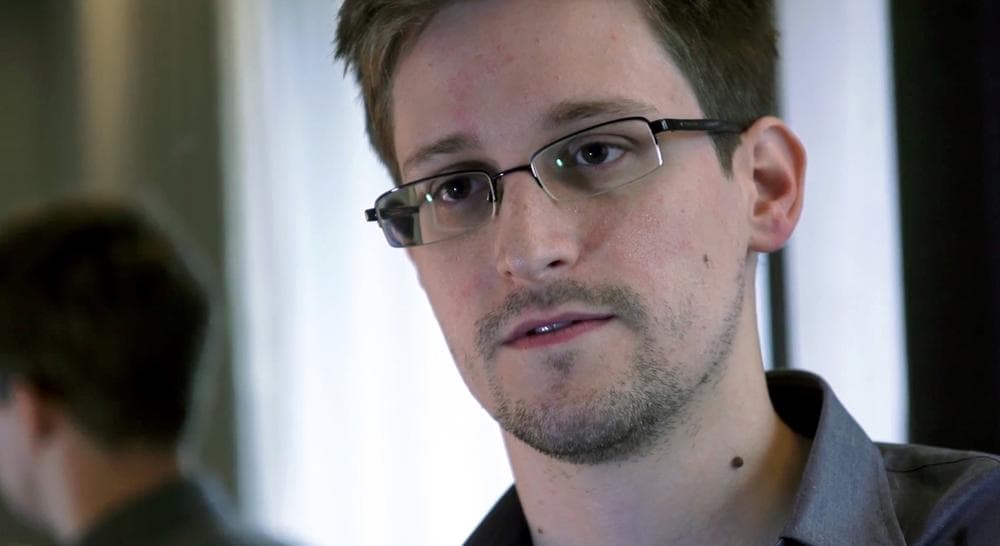Advertisement
Wherever Edward Snowden Lands, He’s Landed Two Presidents In A Mess
The case of Edward Snowden is not simple, either for the U.S. government or for Russian President Vladimir Putin.
The Obama Administration is under pressure both to prosecute Snowden for leaking sensitive intelligence information while, at the same time, it has to defend a broad and intrusive surveillance program whose details, or at least what we have come to know about them, are making many people in Congress and the public apprehensive. Groups like Amnesty International are also challenging the Justice Department not to prosecute Snowden, asserting that he divulged information that the public has the right to know.

In its efforts to prevent Snowden from traveling, the U.S. has cancelled his passport and is pressuring governments to deny him a claim to political asylum, also a troubling repudiation of a universal right.
Putin has a different set of challenges. The Kremlin has gone after activists and others in Russia who have challenged Putin or have tried to organize a credible political alternative. In recent months this included the prosecution of the feminist punk-rock collective Pussy Riot, after the group staged a brief protest inside a Moscow cathedral, calling attention to the Russian Orthodox Church’s support of the repressive measures of the Putin government. Two of the three women are presently serving a term of two years in the labor camps.
Lawyer Alexei Navalny, perhaps Russia’s most famous dissident, was recently convicted of embezzling lumber worth millions of rubles and could face five years in a labor camp. He has campaigned relentlessly against corruption and organized large-scale demonstrations to protest serious irregularities in Russia’s electoral process. It was Navalny who coined the phrase “the party of swindlers and thieves” to characterize Putin’s party, United Russia. In Moscow today, it is assumed that Putin will never forgive Navalny for promoting this catchy slogan.
The Snowden case started out as a challenge for the Obama Administration. It is fast becoming a burden for Putin as well.
But perhaps the most egregious recent case is the death in custody of Sergei Magnitsky, an accountant and specialist in civil law who alleged massive corruption and large-scale theft by Russian officials. In response to Magnitsky’s allegations, he was arrested and spent nearly a year in Moscow’s Butyrka prison before dying of medical neglect and a severe beating in November 2009.
Several subsequent investigations have confirmed the extent of his deteriorating health and the pressures he was under to drop his accusations against police and tax authorities. He was also pressed to give testimony against his former colleagues at Hermitage Capital Management, an investment advisory firm that was the target of Russian officials. Hermitage had a history of exposing corporate and governmental corruption, the kind of oversight the Kremlin was interested in suppressing.
Magnitsky’s death provoked widespread indignation. Among other things, the U.S. Congress passed a law in his name that barred dozens of Russians connected to his mistreatment from entering the United States. In retaliation, Putin enacted a law stopping Americans from adopting Russian children.
But this was not all. The Kremlin decided to prosecute Magnitsky posthumously for tax evasion. As far as we know, this was the first trial in Russia directed against an already dead defendant. He was found guilty last month.

Considering these examples, Putin’s willingness to welcome Snowden and embarrass the Obama Administration is an exercise in hypocrisy.
He allows representatives of international human rights organizations based in Russia to meet with Snowden, at a time when the Kremlin is putting pressure on these same organizations over their alleged status as "foreign agents." Just as domestic activists have gotten into trouble for documenting and protesting human rights violations, representatives of human rights groups have also experienced arbitrary searches and other forms of pressure designed to disrupt, even discredit their work. Putin seems willing to use them when it is useful to him, but then squeeze these same organizations for their work and presence in the country.
So where does this leave Snowden? If he manages to travel to another country, perhaps in Latin America, which seems to be his ultimate goal, the U.S. is unlikely to relent and may well increase its pressure on this third country to relinquish him so he can be prosecuted. But even if Snowden returns to the U.S. by hook or by crook, he is likely to face a long, complicated and messy trial.
Putin’s willingness to welcome Snowden and embarrass the Obama Administration is an exercise in hypocrisy.
I see no early resolution to this case. For Russia, the case may be losing whatever advantage Putin may have enjoyed from it. The longer Snowden remains marooned in a transit lounge at the Moscow airport, the more questions will be raised about why the Kremlin is allowing Snowden's appeal for temporary asylum to drag on. The rule of law has been applied so inconsistently in Russia that it is only natural to ask why Snowden's case should receive either more reliable attention in the courts than so many domestic cases that cry out for justice, or a more expeditious resolution directly from the Kremlin itself.
With President Obama planning on a visit to Russia in September, Putin must feel a need to resolve Russia's connection with this case sooner than later. Otherwise, Edward Snowden will become just one more albatross for him to bear.
The Snowden case started out as a difficult challenge for the Obama Administration. It is fast becoming a burden for Putin as well.
Related:
This program aired on July 31, 2013. The audio for this program is not available.